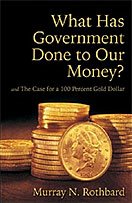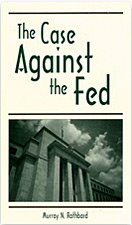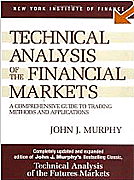Ambrose Evans-Pritchard: When will gold go ballistic?
By Ambrose Evans-Pritchard
The Telegraph, London
Monday, July 23, 2007
A lot of readers have asked why I duck the issue of gold when talking about the dollar crisis and the M3 monetary blow-off.
So here we go:
I started buying gold mining shares in September 2001, missing the bottom by four months. I still hold some shares (mostly duds, since I am the village idiot when it comes to picking stocks). Gold's 15-to-20-year upward cycle is alive and well.
For those who don't follow bullion, gold hit $252 an ounce in the spring of 2001 in a final capitulation selloff when Gordon Brown began his Treasury sales. It rose to a peak of $730 in May 2006.
Gold has languished since, in part because of sales by the Spanish and Belgian central banks. I remain very wary in the short to medium-term.
What unnerves me is the way gold has tended to move in sympathy with global stock markets. Whenever risk appetite rises, it rises. When investors shun risk, it falls. In other words, it has become correlated with all the speculative trades -- notably the yen and franc carry trades -- responding to abundant global liquidity. This liquidity is now being drained as the Bank of Japan, European Central Bank, Swiss National Bank, Bank of England, Riksbank, and Chinese Central Bank, et al., turn off the tap. So be careful.
While the pattern appears to have changed over the last couple of weeks, this is not long enough to establish a "paradigm change," excuse the ghastly term. My concern is that gold will fall hard along with everything else (except the yen and the Swissie) in any market crash/correction.
At some point it will decouple, as it did during the 1987 crash when it fell hard, found a ledge, and then recovered hard, while the Dow kept falling. But, I would rather hold Swissies or yen until gold finds that ledge in a downturn, resuming its old role as a safe store of value. This may happen quite quickly in a crisis. (Of course, I may also be left behind right now in an accelerating rally, but that is a risk I accept.)
Ultimately, gold will surge, once it becomes clear that the euro lacks the staying power to serve as an alternative to the dollar. To restate a point I have made many times, the euro-zone is an ill-assorted mix of 13 unconverged national economies -- with national treasuries, debt structures, taxes, pensions, and labour laws -- that are not ready to share a currency and are drifting further apart by the day.
(Lest anybody forgets, the motive behind monetary union was PURELY political. The economists at the European Commission warned that the project could not survive over time if it included a Latin bloc of countries with an unreformed culture of high inflation, rising wage costs, and an export base exposed to Asian competition [unlike Germany's, which is complimentary] -- unless it were backed by a full superstate. They were ignored. Indeed, any future crisis was to be welcomed as the "beneficial crisis," a chance to force through full political integration that would otherwise have not been possible, as Romano Prodi so candidly admitted when he was commission chief.)
At some point it will become clear to everybody that: the Club Med group cannot compete at an exchange rate of $1.40, $1.45, $1.50, or whatever it reaches; their credit booms are tipping over; they will soon need stimulus more than the US.
Goldman Sachs, by the way, is already "shorting" Italian and French bonds, while going "long" on German bunds to play the divergence (the opposite of the euro-zone "convergence play" that made the banks rich in the 1990s).
We may have a situation where sharp dollar falls caused by impending rate cuts by the Fed set off a systemic crisis for Euroland. If so, politics will quickly take over from economics and begin to dictate events in Europe. The ECB will have to stop raising rates (whatever Berlin wants), and the euro will become a structurally weak currency tilted to the need of the weakest players. If it doesn't, the European Union itself will blow up. So the ECB will have to change tack to support the union. And the European Court will interpret the treaties in such a way as to force the ECB to do so.
Gold will fly once investors can see that neither of the two reserve currency pillars (euro and dollar) is on a sound foundation, and once the pair are engaged in a beggar-thy-neighbour devaluation contest to stave off a slump (if necessary with the use of Ben Bernanke's helicopters, meaning mass purchase of Treasuries, mortgage bonds, stocks, or assets of any kind to support the markets). This would amount to a partial breakdown of the monetary system. Gold will not stop at $800. It might well go beyond $2,000.
We are not there yet. Timing is not my forte, but 2008 looks ripe. Watch the Spanish housing market. Watch the French trade data. Watch Chinese inflation. And, of course, watch the US jobs market -- the bogus prop to the alleged US recovery. (On that, more later.)
* * *
The Telegraph, London
Monday, July 23, 2007
A lot of readers have asked why I duck the issue of gold when talking about the dollar crisis and the M3 monetary blow-off.
So here we go:
I started buying gold mining shares in September 2001, missing the bottom by four months. I still hold some shares (mostly duds, since I am the village idiot when it comes to picking stocks). Gold's 15-to-20-year upward cycle is alive and well.
For those who don't follow bullion, gold hit $252 an ounce in the spring of 2001 in a final capitulation selloff when Gordon Brown began his Treasury sales. It rose to a peak of $730 in May 2006.
Gold has languished since, in part because of sales by the Spanish and Belgian central banks. I remain very wary in the short to medium-term.
What unnerves me is the way gold has tended to move in sympathy with global stock markets. Whenever risk appetite rises, it rises. When investors shun risk, it falls. In other words, it has become correlated with all the speculative trades -- notably the yen and franc carry trades -- responding to abundant global liquidity. This liquidity is now being drained as the Bank of Japan, European Central Bank, Swiss National Bank, Bank of England, Riksbank, and Chinese Central Bank, et al., turn off the tap. So be careful.
While the pattern appears to have changed over the last couple of weeks, this is not long enough to establish a "paradigm change," excuse the ghastly term. My concern is that gold will fall hard along with everything else (except the yen and the Swissie) in any market crash/correction.
At some point it will decouple, as it did during the 1987 crash when it fell hard, found a ledge, and then recovered hard, while the Dow kept falling. But, I would rather hold Swissies or yen until gold finds that ledge in a downturn, resuming its old role as a safe store of value. This may happen quite quickly in a crisis. (Of course, I may also be left behind right now in an accelerating rally, but that is a risk I accept.)
Ultimately, gold will surge, once it becomes clear that the euro lacks the staying power to serve as an alternative to the dollar. To restate a point I have made many times, the euro-zone is an ill-assorted mix of 13 unconverged national economies -- with national treasuries, debt structures, taxes, pensions, and labour laws -- that are not ready to share a currency and are drifting further apart by the day.
(Lest anybody forgets, the motive behind monetary union was PURELY political. The economists at the European Commission warned that the project could not survive over time if it included a Latin bloc of countries with an unreformed culture of high inflation, rising wage costs, and an export base exposed to Asian competition [unlike Germany's, which is complimentary] -- unless it were backed by a full superstate. They were ignored. Indeed, any future crisis was to be welcomed as the "beneficial crisis," a chance to force through full political integration that would otherwise have not been possible, as Romano Prodi so candidly admitted when he was commission chief.)
At some point it will become clear to everybody that: the Club Med group cannot compete at an exchange rate of $1.40, $1.45, $1.50, or whatever it reaches; their credit booms are tipping over; they will soon need stimulus more than the US.
Goldman Sachs, by the way, is already "shorting" Italian and French bonds, while going "long" on German bunds to play the divergence (the opposite of the euro-zone "convergence play" that made the banks rich in the 1990s).
We may have a situation where sharp dollar falls caused by impending rate cuts by the Fed set off a systemic crisis for Euroland. If so, politics will quickly take over from economics and begin to dictate events in Europe. The ECB will have to stop raising rates (whatever Berlin wants), and the euro will become a structurally weak currency tilted to the need of the weakest players. If it doesn't, the European Union itself will blow up. So the ECB will have to change tack to support the union. And the European Court will interpret the treaties in such a way as to force the ECB to do so.
Gold will fly once investors can see that neither of the two reserve currency pillars (euro and dollar) is on a sound foundation, and once the pair are engaged in a beggar-thy-neighbour devaluation contest to stave off a slump (if necessary with the use of Ben Bernanke's helicopters, meaning mass purchase of Treasuries, mortgage bonds, stocks, or assets of any kind to support the markets). This would amount to a partial breakdown of the monetary system. Gold will not stop at $800. It might well go beyond $2,000.
We are not there yet. Timing is not my forte, but 2008 looks ripe. Watch the Spanish housing market. Watch the French trade data. Watch Chinese inflation. And, of course, watch the US jobs market -- the bogus prop to the alleged US recovery. (On that, more later.)
* * *
Labels: Ambrose Evans Pritchard, bull market















![[Most Recent Quotes from www.kitco.com] [Most Recent Quotes from www.kitco.com]](http://www.kitco.com/images/live/t24_au_en_usoz_6.gif)
![[Most Recent Quotes from www.kitco.com] [Most Recent Quotes from www.kitco.com]](http://www.kitco.com/images/live/au_go_0030_ny.gif)
![[Most Recent Quotes from www.kitco.com] [Most Recent Quotes from www.kitco.com]](http://www.kitco.com/images/live/au_go_0365_ny.gif)
![[Most Recent Quotes from www.kitco.com] [Most Recent Quotes from www.kitco.com]](http://kitconet.com/charts/metals/silver/t24_ag_en_usoz_4.gif)

















0 ΣΧΟΛΙΑ (COMMENTS):
Post a Comment
<< Home